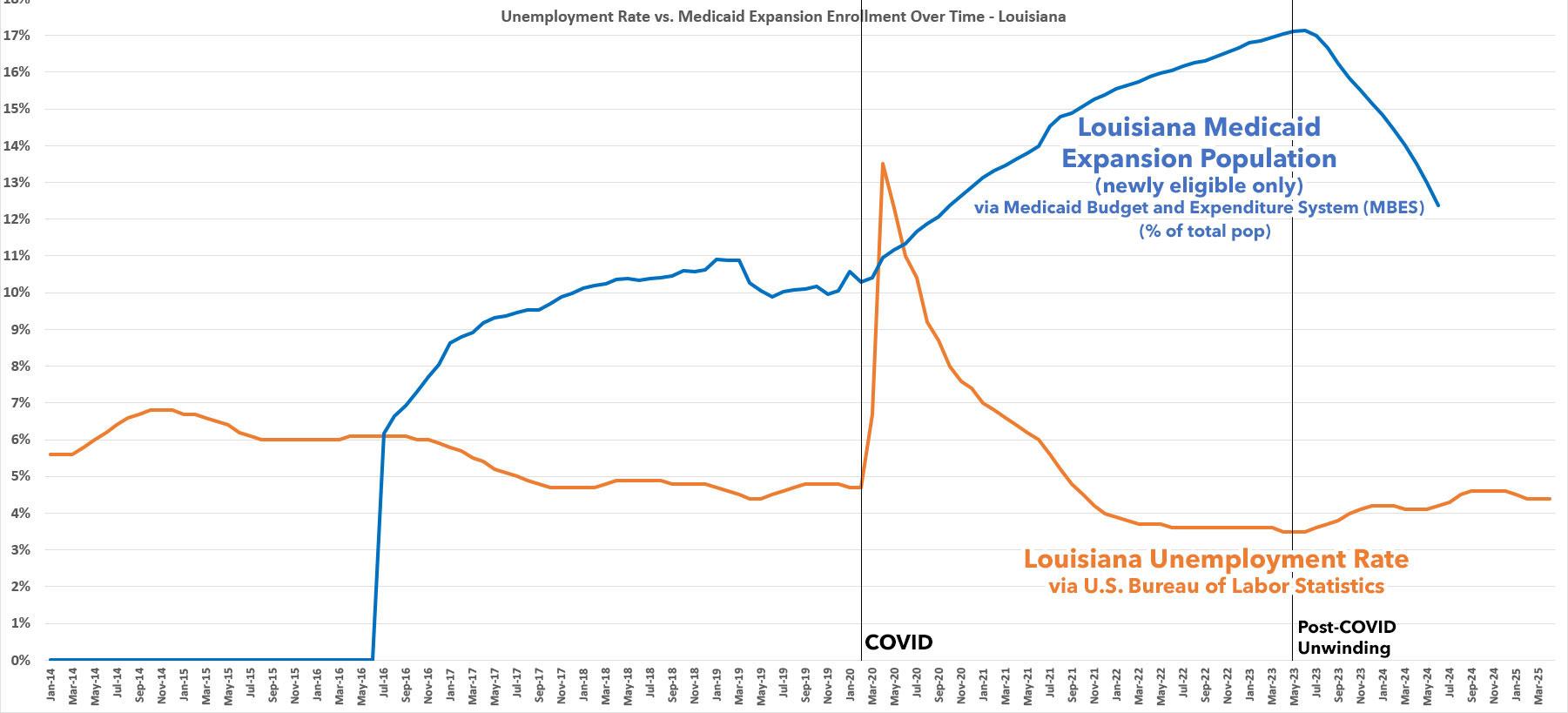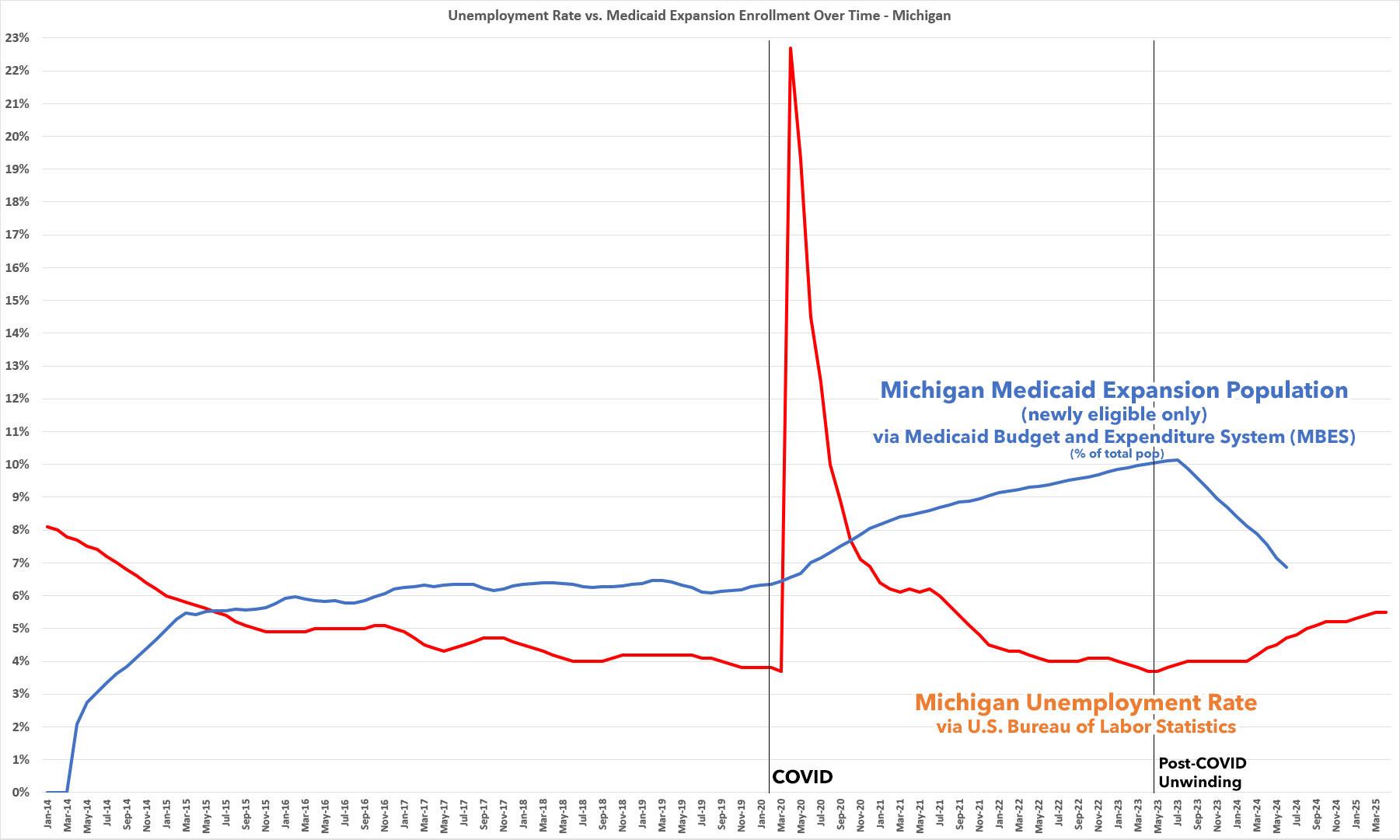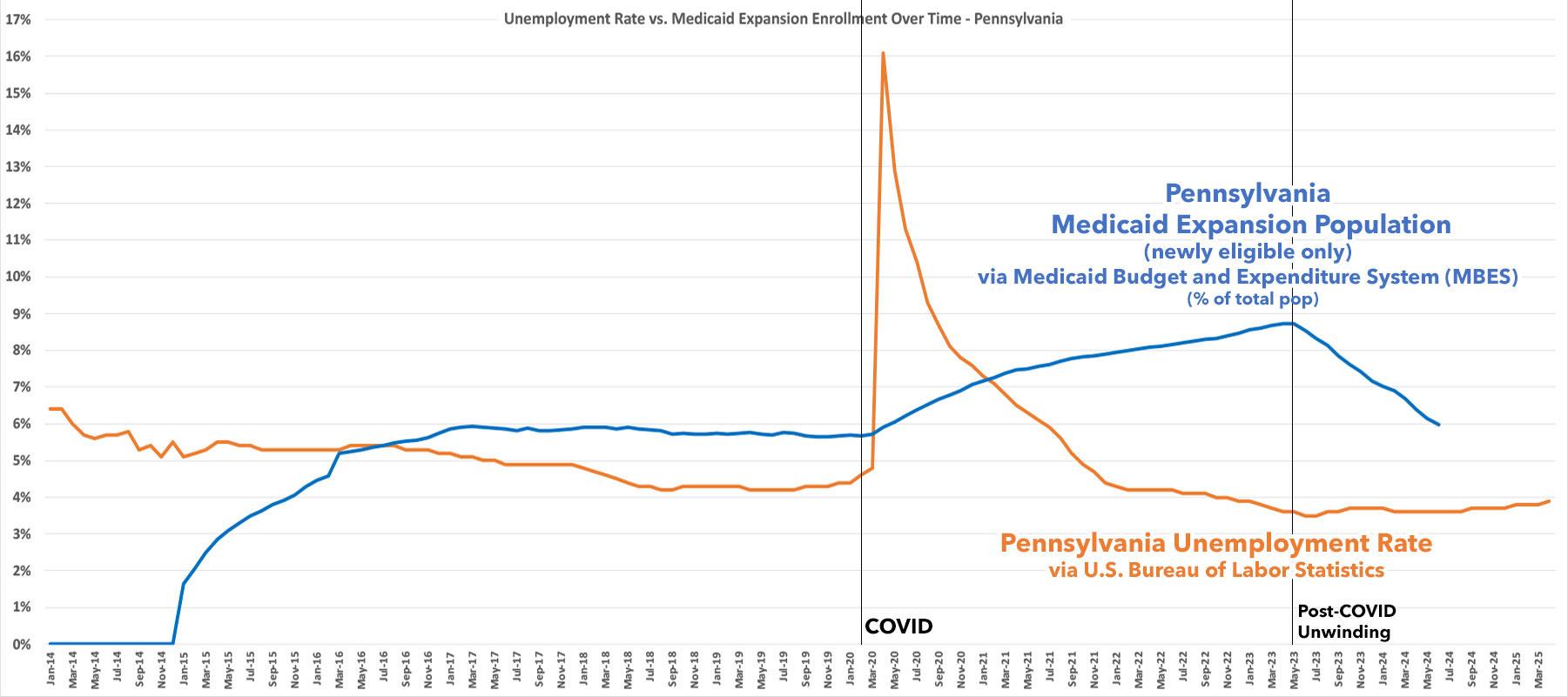About Mike Johnson's attempt to make Gamer Dudebros the new Welfare Queens...

Over the past month or so, as Congressional Republicans have pulled out all the stops in their attempt to ram through their budget bill which would gut Medicaid and ACA exchange enrollment (along with SNAP and numerous other desperately-needed social aid programs), you may have noticed that they keep using an oddly specific talking point:
Mike Johnson: Medicaid Is Not for 29-Year-Old Males Sitting on Their Couches Playing Video Games
Mike Johnson on Medicaid: "What we've talked about is returning work requirements ... you return the dignity of work to young men who need to be out working instead of playing video games all day. We have a lot of fraud, waste, and abuse in Medicaid."
Young men are 'playing videogames all day' instead of getting jobs because they can mooch off of free healthcare, claims congressman
To justify Medicaid cuts, House Speaker Mike Johnson says the healthcare program leads to "able-bodied young men" playing videogames instead of working.
There's a lot to unpack here.
First, as I've noted before, Johnson is clearly trying to turn Young Male Gamers into the 21st century version of the "Welfare Queen" stereotype of the 1980's. Why on earth he's choosing to attack one of the very demographics which tipped the election to Donald Trump last November (young, mostly white men) could be the subject of many a political pundit debate.
Young men are also a strange demographic to demonize on this particular issue as well since 18-29 yr olds tend to rack up the lowest amount of medical bills on average compared to older adults (and my guess would be that young men are even less expensive to treat than young women overall, if only because of the pregnancy/maternity factor).
Setting that aside, however, the gist of Johnson & the GOP's argument is that there are supposedly millions of young men sitting around on their butts playing videogames all day who are soaking in that sweet, sweet free healthcare coverage via ACA Medicaid expansion. Now, don't get me wrong, I'm sure there are a few who fit the first part of this description, but it's important to keep in mind that setting aside the fact that the "welfare queen" stereotype was bullshit as well, Medicaid money doesn't go to those enrolled in the program. Medicaid payments goes to either the doctors, hospitals & drug companies themselves or to the Managed Care Organization (MCO) which administers the program...which in turn pays the doctors, hospitals & drug companies.
In any event, the only way Johnson's argument would have any merit would be if there was a connection between Medicaid expansion and the unemployment rate. As one of my followers on Bluesky noted:
Yeah, the number of unemployed people in Louisiana is 91,539 as of March 2025 according to the Louisiana Workforce Commission. If I can find this in 10 seconds, why can't Tapper?
Louisiana has nearly 1.4 million residents enrolled in Medicaid total, of whom over half--around 784,000 as of last June--were enrolled specifically via the ACA Medicaid expansion program. I'm sure that at least some of those ~92,000 unemployed Louisianans are among the ~310,000 who have no healthcare coverage whatsoever, and at least some of them are almost certainly adult children among the ~1.8 million covered by their employer plan.
HOWEVER, let's give Johnson every benefit of the doubt and assume that all 92,000 are actually part of those ~784,000 Medicaid expansion enrollees (this would be around 12% of the total; for reference, ~92% of Medicaid expansion enrollees either work full- or part-time, attend school, are caregivers for sick relatives etc nationally).
Louisiana expanded Medicaid starting in July 2016, and enrollment has grown from 0% to over 17% of the state's total population...so you'd think the unemployment rate would have risen to some degree over the past 9 years as well, right?
Well...actually, no. Not at all.
Below is a graph showing Louisiana's official unemployment rate over time according to the U.S. Bureau of Labor Statistics, from January 2014 through April 2025. As you can see, it dropped from around 6.8% in late 2014 to as low as 4.4% in mid-2019...before skyrocketing up in early 2020 when the COVID pandemic hit, of course.
After that, however, it rapidly dropped back down again to what I believe may be an all-time low of 3.5% in early 2023. Since then it's gradually inched back up a bit and currently stands at roughly 4.4% again, around where it was just pre-pandemic.
Overlaid on top of this is Louisiana's Medicaid expansion enrollment (newly-eligible enrollees only) as a percentage of the total state population. The enrollment data comes directly from the Medicaid Budget & Expenditure System (MBES) reports put out quarterly by the Centers for Medicare & Medicaid Services (CMS).
As I noted, while most state launched their ACA Medicaid expansion programs in 2014, Louisiana didn't do so until July 2016, which gives me a perfect before & after case study to compare against the unemployment rate...and sure enough, there's no correlation whatsoever between the two, aside from the rapid rise in Expansion enrollment during the COVID pandemic thanks to the Public Emergency Continuous Coverage provisions passed by Congress...which ended in May 2023, after which enrollment dropped off again over the next year and a half via the post-pandemic Unwinding process.
(click graphic for higher-res version)
The main point here is that no, expanding Medicaid to all Louisianans below 138% of the Federal Poverty Level (FPL) did not cause people to leave their jobs, nor did it give anyone who was unemployed at the time an excuse not to bother finding one. In fact, if anything, there's a reverse correlation--you could strongly argue that expanding Medicaid helped cause the unemployment rate to drop. In fact, there's been several studies supporting this:
Employment and Labor Market Effects
State-specific studies have documented significant job growth resulting from expansion. Studies in Louisiana found that in FY 2017, the injection of federal expansion funds created and supported 19,195 jobs (while creating and supporting personal earnings of $1.12 billion) in sectors throughout the economy and across the state; in FY 2018, continued federal healthcare spending supported 14,263 jobs and $889.0 million in personal earnings. A study in Colorado found that the state supported 31,074 additional jobs due to Medicaid expansion as of FY 2015-2016.
Some studies found expansion was linked to increased employment. National research found increases in the share of individuals with disabilities reporting employment and decreases in the share reporting not working due to a disability in Medicaid expansion states following expansion implementation, with no corresponding trends observed in non-expansion states; other research found a decline in participation in Supplemental Security Income, which requires people to demonstrate having a work-limiting disability and limits their allowable earned income. Another national study found evidence that for many of the demographic groups included in the analysis, expansion was associated with an increase in labor force participation and employment.
The study also found a significant decrease in involuntary part-time work for both the full population sample and the sample of those with incomes at or below 138% FPL. A multi-state study found that by the fourth year of expansion, growth in total employment was 1.3 percentage points higher and employment growth in the health care sector was 3.2 percentage points higher in the expansion states studied than in non-expansion states.
Multiple studies showed that expansion supported enrollees’ ability to work, seek work, or volunteer. Single-state studies in Ohio and Michigan showed that large percentages of expansion beneficiaries reported that Medicaid enrollment made it easier to seek employment (among those who were unemployed but looking for work) or continue working (among those who were employed). The Michigan study found that 69% of enrollees who were working said they performed better at work once they got expansion coverage. Another study found that 46% of primary care physicians surveyed in Michigan reported that Michigan’s Medicaid expansion had a positive impact on patients’ ability to work.
An additional study in Michigan found that enrollees who reported improved health due to expansion were more likely to say that expansion coverage improved their ability to work and to seek a new job. In addition, a national study found an association between Medicaid expansion and volunteer work (both formal volunteering for organizations and informally helping a neighbor), with significant increases in volunteer work occurring among low-income individuals in expansion states in the post-expansion period (through 2015) but no corresponding increase in non-expansion states. The researchers connect this finding to previous literature showing an association between improvements in individual health and household financial stabilization and an increased likelihood of volunteering.
Just in case Louisiana might be an outlier, I decided to plug in a similar comparison for my home state of Michigan. Unlike Louisiana, Michigan expanded Medicaid starting back in 2014, although not until April of that year. Here's what that looks like:
(click graphic for higher-res version)
Once again, the unemployment rate steadily dropped even as the Medicaid expansion population grew right up through COVID hitting in March 2020...and again during the cours of the pandemic. In fact, post-COVID, the unemployment rate only started to increase again as Medicaid expansion enrollment has dropped off via the Unwinding process.
Here's Pennsylvania as well..again, the pattern (or the reverse pattern, depending on your POV) is exactly the same, if not as dramatic: Unemployment dropped as Medicaid expansion rose both leading up to the pandemic as well as during and after it...and (slightly) vice-versa over the past year or so.
(click graphic for higher-res version)
I'll see about running this graph for a few more states as well, but I think the point is made pretty clearly: Mike Johnson is full of beans, and kicking millions of people off of Medicaid will not "inspire" anyone to get a job who otherwise wouldn't have done so anyway...in fact, it could very well lead to more people losing their jobs.






